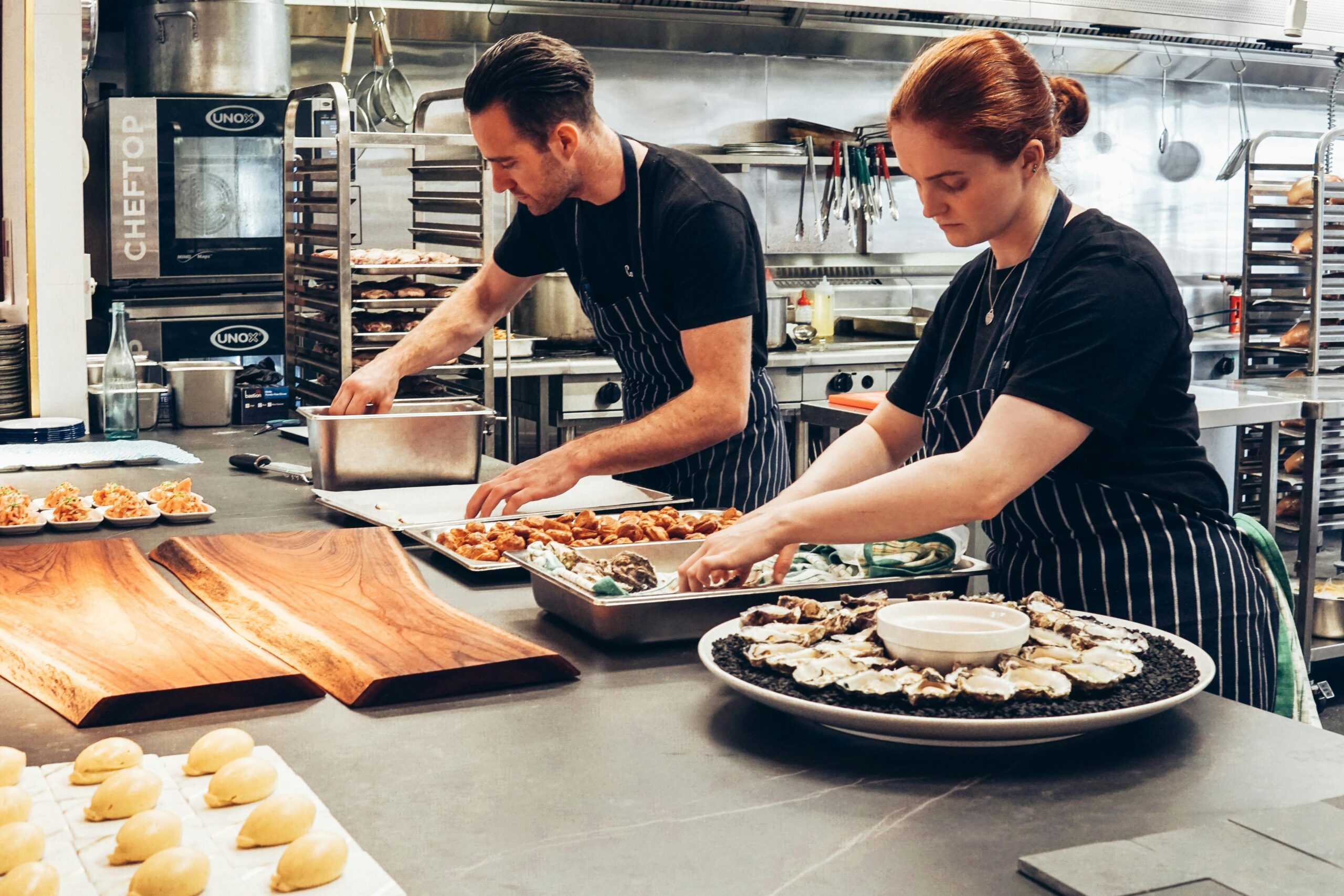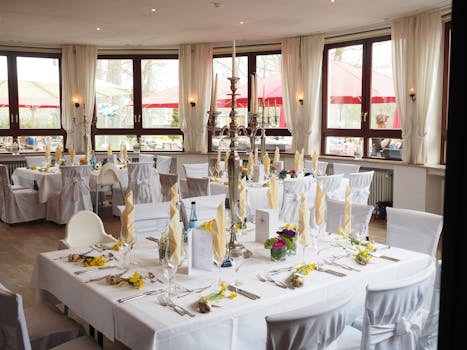8 Facts About Caterers
Last Updated on July 16, 2025
If you attend a major event such as a wedding or birthday party, there’s a good chance that the focal point of the event is food and beverages. By paying attention to the food, it’s easy to tell how well a catering event is going. The food should be delivered at the right temperature and everything
should be tasty.
However, cooking food for big events is no simple task because many factors are involved. A caterer may be responsible for planning a menu, setting up or providing utensils and other equipment. Overall, caterers work behind the scenes to ensure that the most important part of any gathering goes well.
1. Caterers organize events
Caterers work for restaurants and catering companies to provide, transport and prepare food for clients. Client requests range from small functions such as private parties to large events such as weddings and celebrations.
The primary role of a catering cook is to prepare a variety of dishes either in an on or offsite kitchen. They conduct traditional cook tasks such as cutting vegetables, plating dishes and cooking food. At the same time, caterers clean and organize their workstations and storage. In addition to cooking, caterers sit down with clients and discuss their expectations for an event which includes details such as date, time and the number of people attending.
Some catering businesses oversee both the large and small aspects of an event. Large tasks include booking the venue and hiring all staff (bartenders and servers) while the finer details could include choosing the decorations for the theme of the party. Finally, caterers perform business-related tasks such as marketing, accounting and shopping for functions.
2. Caterers don’t require a post-secondary education
One interesting fact about this profession is that these workers have a multitude of educational backgrounds. Many caterers start as a caterer cook and work their way up the business. Experience is vital in this industry. The more you work and build a good reputation, the better chance of attracting bigger clients.
Students that want to accelerate their way up in the business might want to study at culinary schools or in college hospitality programs. An alternative educational background for caterers is event management and coordination. Some individuals even start their own businesses out of their homes, eventually growing the operations to something larger.
3. Caterers perform food-tasting event
Active listening is an essential skill for any successful caterer. They not only listen to their own clients but to potential clients as well. Active listening involves asking specific questions, demonstrating concern, building trust and being attentive.
Good caterers ask questions when they need clarification and listen, listen, listen! Ineffective listening leads to costly misunderstandings and unhappy customers.
4. Caterers perform food tasting events
A great way for caterers to understand a customer’s needs is by organizing food tasting events. Caterers invite clients and potential customers to try out different dishes. Sometimes these events occur annually as they can be expensive, but customers appreciate and anticipate attending these event. These occasions may include an assortment of hors d’oeuvres, dessert items, breads and beverages. The point of a food tasting event is to show what a caterer typically provides though their services and to connect with clients.
5. Caterers are good at business
Catering is not just about the food. Caterers also need to be able to take care of business matters such as customer relations, marketing and accounting. For example, caterers must understand what it costs to make their dishes and how much they should price an event (cost per head). If this task is not performed correctly, a caterer loses money – something bad for a business. Other business matters a caterer performs are promoting their catering services and landing catering customers.
6. Caterers typically have a target market
After a caterer has a few gigs under their belt, it is best that they determine their target market or specialty. Target markets range from small dinner parties to corporate cafeteria services. Caterers choose a target because it strengthens their brand and allows them focus on what they enjoy cooking the most.
7. Caterers need to be able to handle stress
Catering is a stressful job that requires long and difficult hours. There are only a few occupations that put this much pressure on an individual to perform well. Things can burn in a kitchen, you can run out of an ingredient or staff can quit before a service. Caterers expect the unexpected and are prepared for things to go wrong. Overall, things go wrong and caterers need to know how to overcome this.
8. Skills that caterers have:
Being a caterer requires a wide range of skills. However, there are a few which are more essential than others. These skills include:
- Creativity- One of the fun parts about being a caterer is that you are able to design new and innovate dishes. In order to successfully do this caterers have a strong knowledge bank of cooking fundamentals and ingredients. Caterers need to have good ideas that clients will be happy with in order to create the best possible type of meal.
- Time management- There are only so many hours in a day but caterers are able to efficiently use them. In order to manage their time these professionals create detailed to-do lists, delegate task and prioritize tasks.
- Organization skill- This is arguably the most important skill needed by caterers. There are a lot of moving parts when it comes to cooking for event and in for things to go smoothly every aspect needs to be planned. Caterers understand all aspects of a business and are able to get their food correctly and on time.
Subscribe to our newsletter for details on mentorship sessions, workshops, webinars, as well as career and job fairs across Canada and the US!



leave your comment